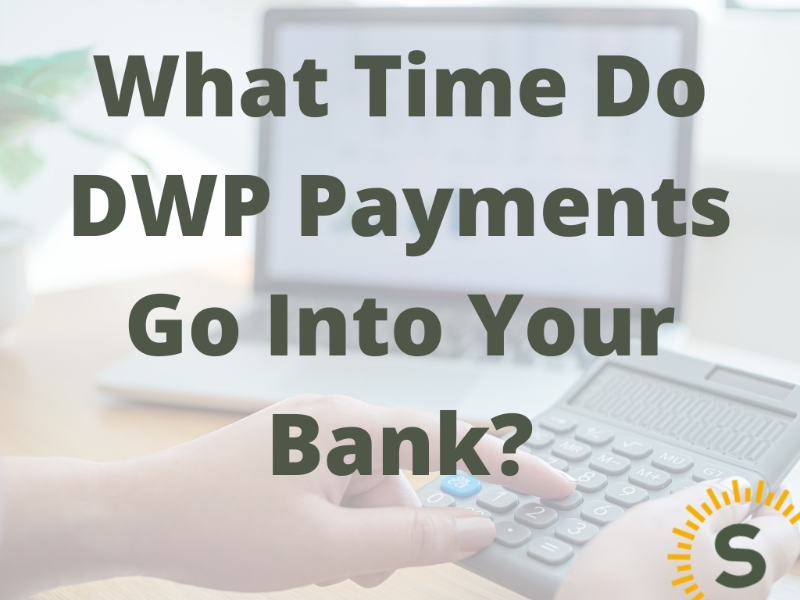
What time do DWP payments go into your bank? It's a question that many recipients of government benefits often find themselves asking, eagerly awaiting the arrival of much-needed funds.
Managing personal finances relies heavily on knowing when to expect incoming payments, and for those who depend on Department for Work and Pensions (DWP) payments, understanding the timing of these deposits is crucial for effective budgeting and planning
In this insight, we cover what type of payments DWP payments are, and when you can expect the money in your bank account.
DWP payments are primarily executed through BACS Payments. BACS payments are typically processed no later than 7AM, but most often around midnight. Your DWP Payments will go into your Bank between those hours, arriving no later than 7am.
However, the exact timing of when DWP payments go in the bank can vary depending on your banking institution. Usually, funds will be accessible shortly after midnight on the day the payment is due. Some banks deposit money slightly earlier, around 11:30pm, while others release the funds later in the night, between 2am and 3am. Some recipients may even have to wait until 6am.
Given the complexities involved, it's always wise to check with your bank for an accurate understanding of when DWP payments go in the bank.
The DWP Payments are made by BACS payment, and all of your benefit payments are typically transferred directly into your bank, building society or credit union account.
Try it FREE for 30 days, then £14.99 a month - cancel online anytime
Most benefits are paid into your account via a BAC transfer. BACS is an electronic system for making payments and these payments normally arrive between midnight and 7am of the day you are due your benefit amount.
Several factors can impact the timing of BACS payments, which are the method used by DWP to pay money into your bank account. These include:
The frequency of your DWP payments depends on the type of benefit payment being made. The current frequencies are as follows:
Let's start by diving into how often various benefits are usually paid:
Note: If your payment date falls on a weekend or a bank holiday, expect to be paid on the previous working day.
If your DWP payment hasn't been paid in as expected, there are several steps you can take to address the situation and ensure that you receive the assistance you are entitled to:
Check the Schedule: Before taking any action, make sure you've allowed enough time for the payment to process. DWP payments can sometimes experience delays due to weekends, bank holidays, or processing times. Check the typical payment schedule to see if your payment might still be on its way.
Contact DWP: If you believe your payment is overdue, the first step is to contact the Department for Work and Pensions directly. You can find their contact information on their official website or any correspondence you've received from them. Explain the situation and provide any necessary details, such as your National Insurance number, claim reference, and payment date.
Check Your Details: Ensure that your personal and banking details registered with DWP are accurate and up to date. Mistakes in account numbers, sort codes, or contact information could lead to payment issues.
Bank Communication: Contact your bank to confirm if any payments have been received but not processed. They can provide insight into any pending transactions or potential issues on their end.
Check for Correspondence: Sometimes, the DWP may send letters or notifications regarding changes in your benefits or payment schedule. Review any recent correspondence to see if there are any relevant updates.
Seek Advice: If your DWP payment continues to be delayed without resolution, consider seeking advice from Citizens Advice or a relevant advocacy group. They can provide guidance on your rights, potential next steps, and help in escalating the issue if needed.
Emergency Payments: In certain circumstances, such as financial hardship, you might be eligible for emergency payments. Contact DWP to ask about this option if you find yourself in a critical situation.
Appeals Process: If you believe that your payment has been wrongfully withheld or if you've received a decision that you disagree with, you can go through the appeals process outlined by DWP. This typically involves requesting a mandatory reconsideration and, if necessary, taking the matter to a tribunal.
DWP payments are processed by DWP as BACS payment, they typically will arrive in your Santander bank account between the hours of 2am to 7am on the day they are due to be paid in.
DWP payments are processed by DWP as BACS payment, they typically will arrive in your HSBC bank account between the hours of 2am to 7am on the day they are due to be paid in.
DWP payments are processed by DWP as BACS payment, they typically will arrive in your Natwest bank account between the hours of 2am to 7am on the day they are due to be paid in.
DWP payments are processed by DWP as BACS payment, they typically will arrive in your Halifax bank account between the hours of 2am to 7am on the day they are due to be paid in.
DWP payments are processed by DWP as BACS payment, they typically will arrive in your Lloyds bank account between the hours of 2am to 7am on the day they are due to be paid in.
DWP payments are processed by DWP as BACS payment, they typically will arrive in your Lloyds bank account between the hours of 2am to 7am on the day they are due to be paid in.
Remember that patience and persistence are key when dealing with payment issues. Keep records of all communications, reference numbers, and correspondence for your own reference. While delays can be frustrating, following these steps should help you navigate the situation and resolve any issues with your DWP payments.
Unfortunately, recipients cannot request a specific time for DWP payments to be deposited into their bank accounts. The timing of DWP payments is primarily determined by the Department for Work and Pensions and the BACS payment processing system.
If your DWP payment is less than expected, it's important to first review your entitlement and any recent changes in your circumstances that may have affected your benefits. If you believe there has been an error or discrepancy in your payment, you should contact the Department for Work and Pensions directly to inquire about the issue. They can provide clarification and assistance in resolving any payment discrepancies.
In certain circumstances, such as financial hardship or urgent need, recipients may be eligible for emergency payments from the Department for Work and Pensions. These emergency payments are designed to provide immediate assistance to individuals facing critical situations. If you find yourself in an emergency situation requiring expedited payment processing, you should contact the Department for Work and Pensions to inquire about the possibility of receiving emergency assistance. They can provide guidance on eligibility criteria and the application process for emergency payments.

Stuart is an expert in Property, Money, Banking & Finance, having worked in retail and investment banking for 10+ years before founding Sunny Avenue. Stuart has spent his career studying finance. He holds qualifications in financial studies, mortgage advice & practice, banking operations, dealing & financial markets, derivatives, securities & investments.





Our website offers information about financial products such as investing, savings, equity release, mortgages, and insurance. None of the information on Sunny Avenue constitutes personal advice. Sunny Avenue does not offer any of these services directly and we only act as a directory service to connect you to the experts. If you require further information to proceed you will need to request advice, for example from the financial advisers listed. If you decide to invest, read the important investment notes provided first, decide how to proceed on your own basis, and remember that investments can go up and down in value, so you could get back less than you put in.
Think carefully before securing debts against your home. A mortgage is a loan secured on your home, which you could lose if you do not keep up your mortgage payments. Check that any mortgage will meet your needs if you want to move or sell your home or you want your family to inherit it. If you are in any doubt, seek independent advice.